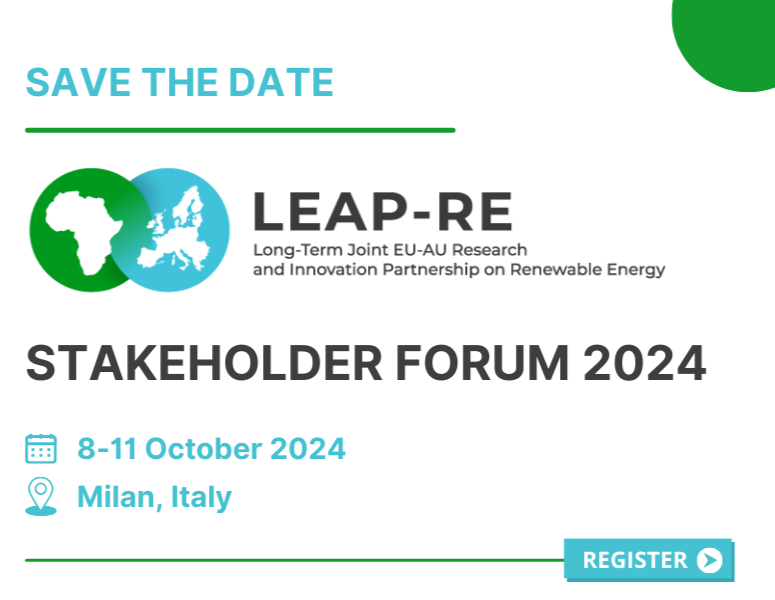Clustering Session 3: Energy Systems and Modelling with Considerations to Water-Energy-Food Nexus
Date: October 10th
Time: 16:30 – 18:00 CET
KADI will participate in Session 3 of the LEAP RE stakeholder forum with a presentation and a panel discussion. KADI’s participation will address the importance of the envisaged research infrastructure for energy systems modelling in Africa as well as the identified climate service needs. KADI has been connected to the LEAP RE network and is listed as a related project in the initiatives portfolio. KADI will also participate in in the cluster meetings for the projects to find collaboration point.
Building a climate cluster of EU projects in Africa
As part of its objective to support the climate component of the climate change and sustainable energy partnership (CCSE), KADI is facilitating the building of a climate cluster for projects and initiatives with similar topics funded by the European commission. The integration of KADI into the climate cluster serves to bolster the climate change initiatives within the CCSE partnership. The first step towards this was identifying and engaging with similar existing initiatives like Focus-Africa, Down2Earth, CONFER, ALBTAROSS , SAFE4ALL, and GMES and Africa.
KADI plays a pivotal role in both adapting to and mitigating the impacts of climate change. The project coordination institution, ICOS ERIC, collects and transforms climate data to facilitate the implementation of technological and systemic solutions essential for managing and disseminating climate-related information effectively. Through KADI, a holistic knowledge framework for climate action is being fostered.
KADI is committed to supporting African countries in strategies to:
Integrate existing climate services by:
- Addressing priority areas and disseminating required climate information
- Identifying key stakeholder networks
- Engaging with funding initiatives
- Providing knowledge sharing and training
- Ensuring participatory engagement
Strengthen the links between climate service needs and:
- Policy formulation, policy cooperation and integration,
- Funding approaches
- Access to data and data management
- Expertise, knowledge, and experience sharing
- Combination of in situ and satellite observation
Strengthen seemingly ‘new’ aspects of climate science:
- Human experiences as a vital dimension of research infrastructures
- Impact pathways
- Development of “softer” scientific infrastructures, prioritising user spaces


